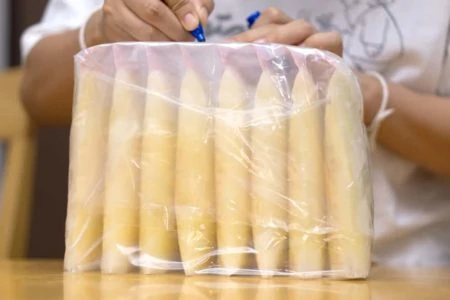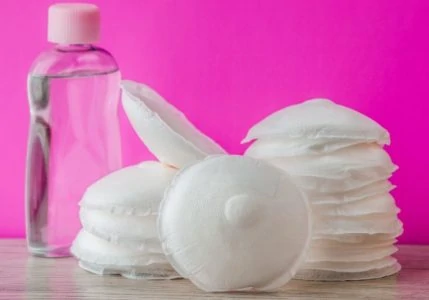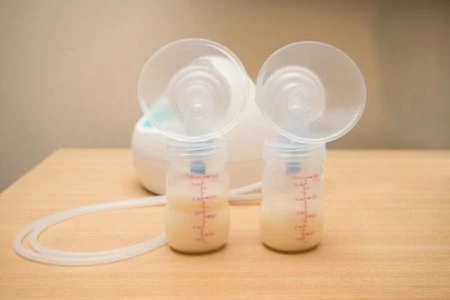Let’s be honest: new moms run on love, cuddles, and, more often than not, coffee.
When you’ve been up all night soothing a crying baby, a caffeine boost feels like a survival necessity. But is your morning brew safe for your little one?
Many mothers worry about passing jitters or sleep issues to their nursing infants. The good news is that you don’t have to give up your favorite mug entirely. Let’s break down the facts, limits, and safe alternatives so you can stay awake without the worry.
Key Takeaways
- Limit your intake: Most health organizations recommend staying under 300 mg of caffeine per day, which is roughly two to three cups of coffee.
- Watch for reactions: Excessive caffeine can cause fussiness, jitteriness, and poor sleep in some sensitive babies.
- Timing matters: Caffeine levels in breast milk peak about one hour after consumption, so try to nurse before you drink your coffee.
- Consider alternatives: Hydration, fruit, sunlight, and naps are caffeine-free ways to battle postpartum fatigue.
Can Breastfeeding Moms Drink Caffeine?
The short answer is yes. You don’t need to go cold turkey just because you are nursing.
However, moderation is key. Approximately 1% of the caffeine you drink transfers to your breast milk (1). While that sounds small, babies metabolize caffeine much slower than adults, meaning it stays in their system longer.
Several factors influence how your baby reacts to that morning latte:
- Age: Newborns are more sensitive than older babies.
- Weight: Your baby’s weight plays a role in how they process substances.
- Health: Preemies or babies with health issues may have lower tolerance.
- Source: Coffee, tea, soda, and chocolate all have different potency levels.
The best approach is “watch and wait.” If your baby seems fine, your current intake is likely okay.
The Risks of Caffeine While Breastfeeding
Most babies handle moderate caffeine exposure just fine. However, if you exceed the recommended 300 mg daily limit, or if your baby is particularly sensitive, you might notice side effects.
Keep an eye out for these signs of caffeine sensitivity (2):
- Sleep issues: Trouble falling asleep or staying asleep.
- Hyperactivity: Unusual alertness or “wide-eyed” behavior.
- Irritability: Increased fussiness or jitters.
- Digestive upset: Some moms report loose stools or gas in the baby.
There is also a nutritional consideration regarding iron. Studies suggest that heavy caffeine consumption might lower iron levels in breast milk.
Since iron is crucial for development, and the American Academy of Pediatrics recommends iron supplementation starting at 4 months (or until baby begins eating iron-rich solid foods), you want to ensure your milk remains nutrient-dense (3). Moderate intake usually prevents this issue, but it is something to keep in mind if your baby is prone to anemia.
Are Some Caffeine Sources Safer?
Caffeine hides in more places than just your coffee pot. It’s in soda, tea, chocolate, energy drinks, and even some pain relief medications.
Here is how common sources stack up for breastfeeding moms.
1. Coffee
Coffee is the most potent common source. The CDC suggests limiting intake to 300 mg per day. Depending on the roast and brewing method, this is usually about two to three 8-ounce cups.
If you love the taste but want to cut the jitters, consider a half-caff blend or a low-acid option. Some brands formulate coffee blends specifically for moms that are gentler on the stomach and slightly lower in caffeine.
2. Tea
Tea is generally a safer bet because it typically contains less caffeine than coffee. You can usually enjoy several cups of black or green tea without hitting the 300 mg limit.
Herbal teas are naturally caffeine-free, and some are designed to help with supply. Lactation teas often blend galactagogues (milk-boosting herbs) with soothing ingredients:
3. Soda
A 12-ounce can of soda usually has 30 to 50 mg of caffeine. While this is lower than coffee, soda is loaded with sugar or artificial sweeteners.
Sugar doesn’t transfer to breast milk in a harmful way, but the “sugar crash” you feel afterward can make your exhaustion worse. If you drink soda, stick to one or two a day and drink plenty of water to offset it.
4. Energy Drinks
Proceed with caution here. Energy drinks are generally not recommended while breastfeeding.
They often contain high amounts of caffeine masked by sugar, along with unregulated herbal supplements like guarana, taurine, or ginseng. These ingredients “stack” with caffeine and can cause rapid heart rates or jitteriness in both you and your baby (4).
5. Chocolate
Yes, chocolate contains caffeine too! Dark chocolate has significantly more caffeine than milk chocolate. If you are eating a whole bar of dark chocolate and drinking three cups of coffee, you might unknowingly go over your daily limit.
When Should I Consume Caffeinated Drinks?
Timing is everything. Caffeine levels in your breast milk generally peak 60 to 120 minutes after you drink it.
To minimize the amount your baby gets:
- Nurse first: Feed your baby right before you sit down with your coffee.
- Wait it out: By the time your baby is hungry again (usually 2 to 3 hours later), the concentration in your milk will have dropped.
This simple schedule change lets you enjoy your morning ritual with less guilt.
Natural Sources of Energy for Moms
We know “sleep when the baby sleeps” is annoying advice when you have laundry to do. But relying solely on caffeine can lead to a crash.
Here are four natural ways to boost your energy without the espresso shot.
1. Prioritize Rest (Even Micro-Naps)
Sleep deprivation is real, and it is brutal. Research shows postpartum fatigue can linger for months (5).
If a full eight hours is impossible, aim for “micro-rests.” Lie down for 15 minutes while the baby naps. Don’t scroll on your phone; close your eyes. Even a short reset can lower cortisol levels and improve your mood.
Relaxation Tip
2. Fuel With Fruit
Complex carbs and natural sugars provide sustained energy compared to the spike-and-crash of processed sugar. Next time you shop, grab these energy-boosting fruits:
- Apples: High in fiber and antioxidants, apples release energy slowly. Pair slices with peanut butter for protein.
- Bananas: Packed with potassium and vitamin B6. A study on cyclists found bananas were as effective as sports drinks for endurance (6).
- Citrus: Oranges and grapefruits are loaded with vitamin C, which helps your body synthesize carnitine, a compound that turns fat into fuel.
3. Soak Up Sunlight
Vitamin D deficiency is a common cause of fatigue. Just 15 minutes of sunlight can reset your circadian rhythm and boost your mood.
Take the baby outside for a short walk. If it is winter or you are stuck inside, sit by a bright window or talk to your doctor about vitamin D supplements. Don’t forget sunscreen if you’re out for long periods!
4. Move Your Body
It sounds counterintuitive to exercise when you are exhausted, but physical activity increases blood flow and endorphins.
You don’t need a gym membership. Put your baby in the stroller or strap them into a carrier and walk around the block. The fresh air helps the baby sleep, and the movement wakes up your body.
Finding a “mommy and me” exercise class is a great way to meet other moms in the same boat. You can even do a few stretches while your baby is chilling on a blanket next to you to get a boost of energy.
Editor's Note:
Michelle Roth, BA, IBCLCFAQs
The Bottom Line
You don’t have to choose between breastfeeding and your morning pick-me-up. For most moms, drinking a moderate amount of caffeine (about 300 mg) is perfectly safe.
Pay attention to your baby’s cues. If they seem jittery or won’t sleep, cut back or switch to decaf for a while. Otherwise, brew that cup, take a deep breath, and enjoy the energy boost, you earned it!











